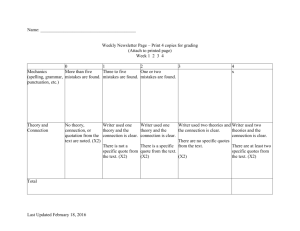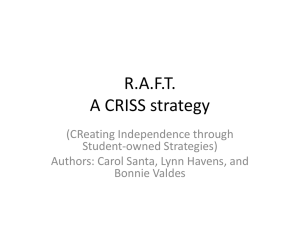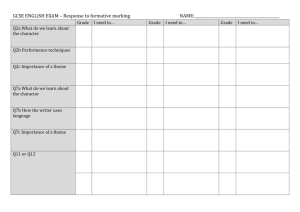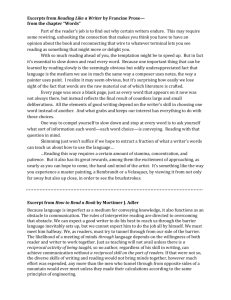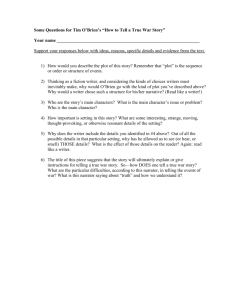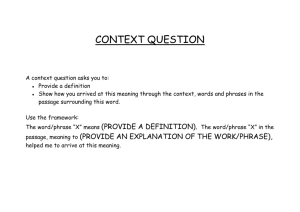Close Reading Help Sheet
advertisement
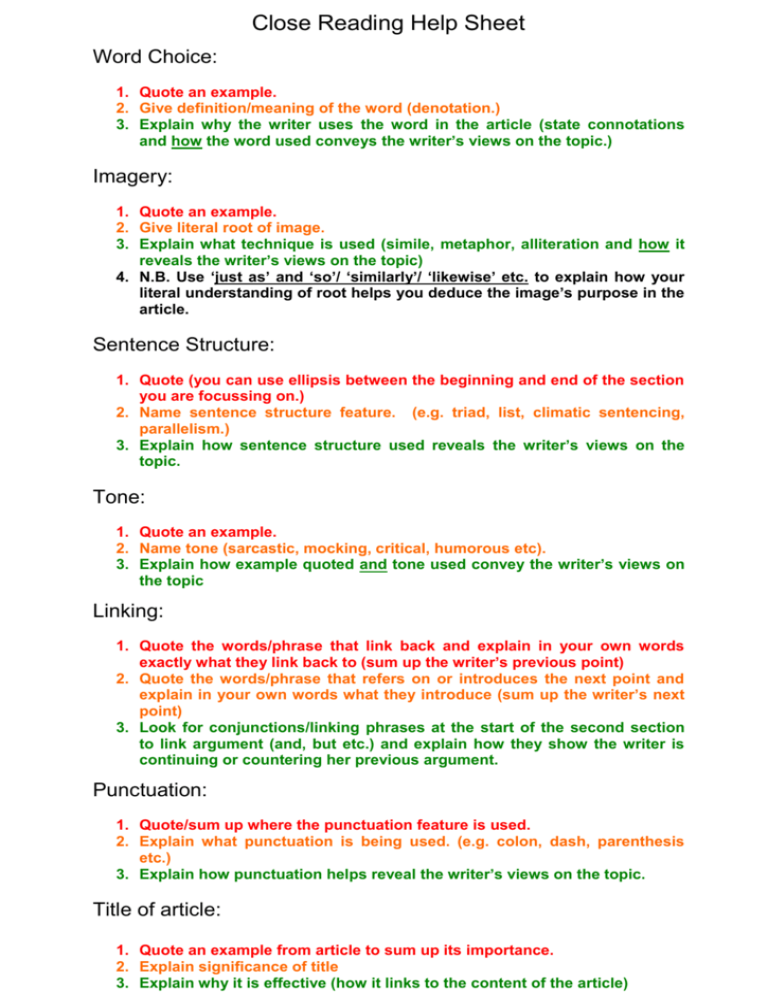
Close Reading Help Sheet Word Choice: 1. Quote an example. 2. Give definition/meaning of the word (denotation.) 3. Explain why the writer uses the word in the article (state connotations and how the word used conveys the writer’s views on the topic.) Imagery: 1. Quote an example. 2. Give literal root of image. 3. Explain what technique is used (simile, metaphor, alliteration and how it reveals the writer’s views on the topic) 4. N.B. Use ‘just as’ and ‘so’/ ‘similarly’/ ‘likewise’ etc. to explain how your literal understanding of root helps you deduce the image’s purpose in the article. Sentence Structure: 1. Quote (you can use ellipsis between the beginning and end of the section you are focussing on.) 2. Name sentence structure feature. (e.g. triad, list, climatic sentencing, parallelism.) 3. Explain how sentence structure used reveals the writer’s views on the topic. Tone: 1. Quote an example. 2. Name tone (sarcastic, mocking, critical, humorous etc). 3. Explain how example quoted and tone used convey the writer’s views on the topic Linking: 1. Quote the words/phrase that link back and explain in your own words exactly what they link back to (sum up the writer’s previous point) 2. Quote the words/phrase that refers on or introduces the next point and explain in your own words what they introduce (sum up the writer’s next point) 3. Look for conjunctions/linking phrases at the start of the second section to link argument (and, but etc.) and explain how they show the writer is continuing or countering her previous argument. Punctuation: 1. Quote/sum up where the punctuation feature is used. 2. Explain what punctuation is being used. (e.g. colon, dash, parenthesis etc.) 3. Explain how punctuation helps reveal the writer’s views on the topic. Title of article: 1. Quote an example from article to sum up its importance. 2. Explain significance of title 3. Explain why it is effective (how it links to the content of the article)
